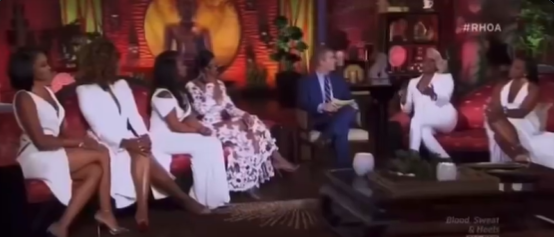Janet Jackson’s name is once again buzzing in the headlines—this time for reasons that have stirred up a firestorm of conversation. After making some eyebrow-raising comments about Vice President Kamala Harris, Jackson is now stepping back from an apology that had been issued on her behalf—an apology she didn’t quite seem ready to stand behind.
Janet Jackson apologizes to VP Kamala Harris after questioning her race. pic.twitter.com/WDuQpPal7U
— ☈OMEKO✨ (@_romeko) September 22, 2024
It all started when Jackson sat down with The Guardian and got into a candid talk about race and politics, particularly the notion of having the first Black female president in Kamala Harris. When asked about Harris’s identity, Jackson didn’t mince words but instead raised a bit of a flag. “Well… you know what they’ve been saying, right?” she responded. “She’s not Black. That’s what I heard. That she’s Indian.”
But it didn’t stop there. Jackson went on to suggest that she had been told Harris’s father was actually white—a claim that quickly threw fuel on an already smoldering discussion about racial identity. For those needing a refresher, Kamala Harris was born to Shyamala Gopalan, a respected Indian-American breast cancer researcher, and Donald Harris, a Jamaican economist. Both her parents made notable marks in their fields—yet, here we are debating the dimensions of her identity.
Janet Jackson Says Something About Kamala Harris’ Race — Media Losing Their Minds
I didn’t have Janet Jackson on my bingo card.
Expect the cancellation effort to follow. pic.twitter.com/jTYWLu7Qu3
— .*Funkytown™*. (@01Funkytown) September 22, 2024
What made Jackson’s remarks echo even louder was the resemblance they bore to statements made by former President Donald Trump. Back in July, Trump threw in his own two cents, claiming that he didn’t realize Harris was Black until “a few years ago.” He poked at the idea that she was “Indian all the way” before “suddenly becoming Black.” This narrative has sparked more than a few conversations around what it means to be biracial in the public eye, especially when it comes to politics.
Jackson’s words might have seemed casual, but they’ve struck a chord, amplifying the complex and often controversial dialogue around race and identity in America. The fact that these remarks so closely mirrored Trump’s past comments makes this all the more curious—bringing the discussion of race into sharp focus.
The conversation about racial identity, especially for those who straddle multiple backgrounds, is as nuanced as it is personal. And yet, public figures like Jackson and Trump often throw out lines that seem to reduce this complexity to a checkbox. Jackson’s off-the-cuff comments play into a long history of biracial individuals being asked to prove or explain their heritage—a frustrating and at times disheartening reality that too many face.
Janet Jackson slammed as ‘irrelevant’ and a ‘leech’ for questioning Kamala Harris’ race: ‘She’s not black’ https://t.co/SNeWhCM6Lm pic.twitter.com/OBwu8yJ6WN
— Page Six (@PageSix) September 21, 2024
In retracting the apology, Jackson is making it clear that this is a touchy subject—one that can ignite reactions faster than she might have expected. It’s a reminder that in today’s political climate, discussions about race are far from settled and one statement can spin out into something much larger than intended.
Major Points:
- Janet Jackson stirred controversy with comments about Kamala Harris’s racial identity.
- Jackson questioned whether Harris is Black, citing rumors that she is Indian.
- Kamala Harris was born to an Indian mother and a Jamaican father, both prominent figures in their fields.
- Jackson’s remarks echo statements made by former President Trump about Harris’s identity.
- The situation underscores the complexity of biracial identity and how it’s often scrutinized in public life.
Fallon Jacobson – Reprinted with permission of Whatfinger News



